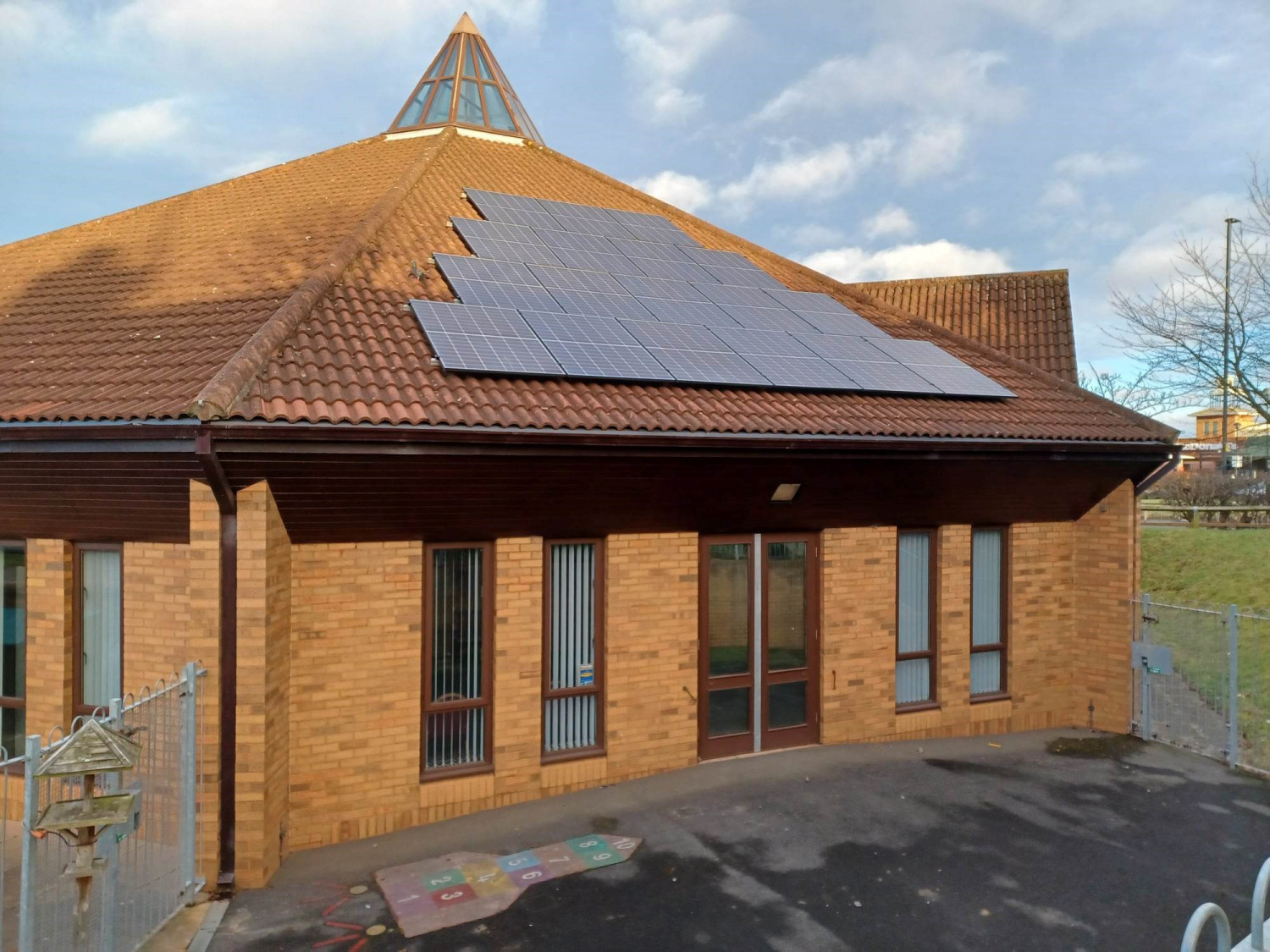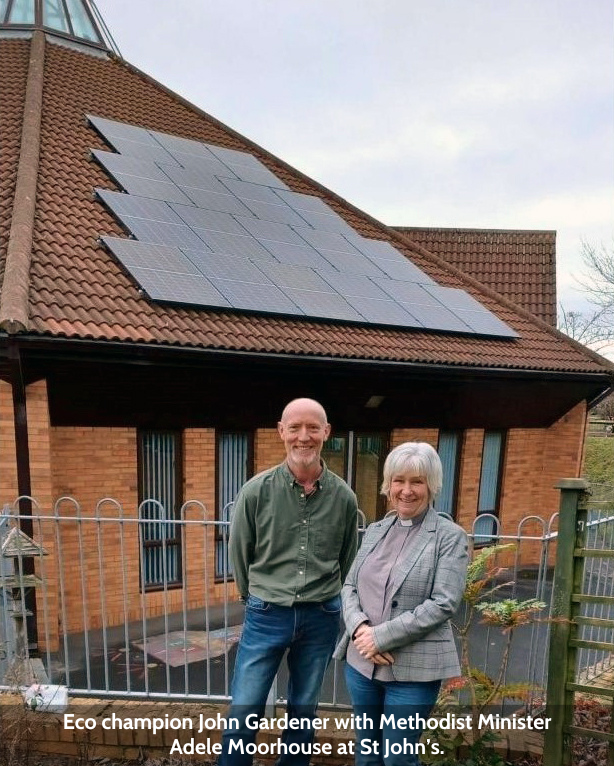
Solar panels have been installed at a Newcastle church as it bids to help tackle climate change and commit to a greener future.
The 18 panels, which have been fitted to the roof of St John’s Church in Kingston Park, will provide around a third of the building’s energy needs and contribute towards the Diocesan aim of achieving operational net zero carbon by 2030.
The church claims there will be an overall output of 7,473kwh per year, with 3,500kg CO2 emissions avoided per annum.
One of the first actions of the newly formed ‘Eco Team’ at St John’s church, formed in early 2022, was to initiate a Green Journey energy audit, which was encouraged and paid for by Newcastle Diocese.
A report from the audit highlighted some big potential savings from the use of solar energy, both financially and in terms of carbon emissions, and in July 2022 the process of getting solar panels installed on the church roof began.
Built in 1991, St John’s is a modern building and is free from the constraints and processes required for many historical buildings.
It also benefits from its design of having a 360 degree roof all around, so an optimum shape to make the most of Newcastle’s often fleeting sun.
 Finding out what to do, where to go, how it can be done…. John Gardener, St John’s eco champion explains.
Finding out what to do, where to go, how it can be done…. John Gardener, St John’s eco champion explains.
The first part of the process was to wade through the overwhelming amount of information available on Google, podcasts and webinars etc.
But two particular contacts at this stage proved to be significant: Bethany Hume, Assistant Secretary for the Diocese of Newcastle and Ella Vickers, the Central Deanery Environmental Champion.
Spurred on by their advice and links, some further research identified local solar panel fitters and installers, including local company SWH Electrical Solutions which was ultimately chosen to carry out the works. SWH carried out an assessment of the church and provided a report of the technical details including suggested energy and carbon savings and recommendations for the best installation for the building, as well as a detailed quotation for the work.
Lucy Burfield, DAC Secretary, Diocese of Newcastle, provided advice about what would be required for an application, which would be necessary.
Newcastle City Council Planning Department informed us that due to the size and location of the panels being installed on a non-domestic building, no planning permission would be required.
At this point, St John’s completed a cost/benefit analysis, together with a discussion on aesthetics of the panels, and recommended proceeding with the works on the basis that the presence of panels was a positive statement of the church’s commitment to environmental issues. The church council discussed the proposal and agreed to provide £5,000 towards the costs of installation if grants could be accessed to provide the remainder.
The full quotation for the works was £12,500, so a further £7,500 would be required to be raised.
Grant applications were then sent out to the most likely Christian sources of funding, from the list of potential funders provided by the Diocese website. A secular funding grant application was also sent to the Energy Project Enabling Fund. Of these applications, the Energy Project Enabling Fund, delivered by The North East and Yorkshire Net Zero Hub, provided the largest grant to cover the shortfall, provided evidence and outcomes of the benefits of the installation would be provided, with the Bernard Sunley Foundation also returning with a contribution towards the costs.
In January 2023, the panels were installed and wired into the grid, to begin St John’s green journey of solar enhanced energy provision.
If you might be interested in finding out more about the process St John’s went through please contact John Gardener, St John’s Eco Champion at stjohnseco@hotmail.com